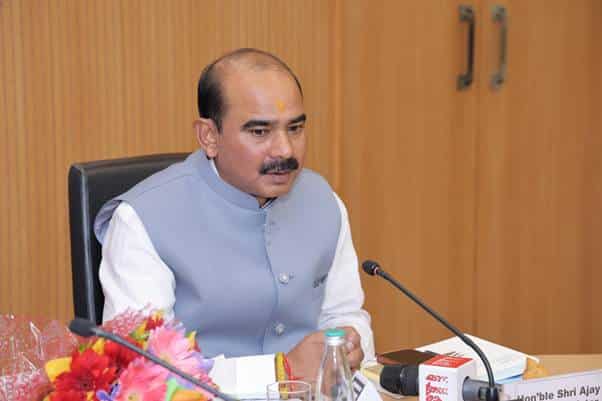Building India’s Infrastructure Future

Shri Ajay Tamta, the Minister of State for Road Transport and Highways, recently engaged in a significant dialogue with experts from IIT Delhi and the School of Planning and Architecture (SPA) in Delhi, along with industry partners. The discussion focused on the future of India’s infrastructure, emphasizing the importance of innovation, safety, and context-sensitive road planning. The event highlighted advanced technologies and planning frameworks aimed at revolutionizing road construction and safety in India, aligning with the vision of a developed nation by 2047.
Innovative Road Planning for a Developed India
During the dialogue, Minister Tamta underscored the pivotal role of infrastructure in achieving Prime Minister Narendra Modi‘s vision of Viksit Bharat 2047. He stated that the Ministry of Road Transport and Highways (MoRTH) is not merely constructing roads but is also developing corridors that will drive industrial growth, urban expansion, and enhance digital connectivity. This approach aims to improve the overall well-being of citizens. The Minister called for a shift from traditional reactive construction methods to proactive, innovation-driven planning, positioning road projects as integral components of multi-sectoral development rather than isolated engineering tasks.
Addressing Challenges in Road Projects
Shri Tamta interacted with faculty and innovators from IIT Delhi and SPA, emphasizing the need for innovative solutions to persistent challenges in road projects. These challenges include land acquisition issues, urban traffic congestion, and poor last-mile connectivity, which often lead to cost overruns. The Minister advocated for the development of indigenous design models tailored to India’s unique geography, climate, and population density. He highlighted the necessity for customized solutions, such as integrated safety zones and mixed-use road corridors, to effectively address these challenges.
Advancements in Traffic Management and Public Transit
The Minister also reviewed innovative traffic management models, including multi-directional free traffic systems and hotspot-based safety designs. He introduced a new door-to-door mobility system that utilizes a no-app-no-URL (PiFi – Private Internet Fidelity) transport model, which is designed for efficient public transit in urban areas. This system aims to provide low-cost and high-efficiency transportation options, catering to the growing demands of urban populations.
Collaboration for Intelligent Infrastructure
Shri Tamta proposed a governance model that encourages transparent evaluation of physical plans before the formulation of Detailed Project Reports (DPRs). He reiterated the importance of innovation as a cornerstone of MoRTH’s future planning strategy and emphasized the role of Centres of Excellence (CoEs) as incubators for cross-disciplinary ideas. The Minister praised IIT Delhi and SPA for their leadership in this initiative and called on other academic and industry institutions to join in the mission of building intelligent infrastructure for the nation.
Observer Voice is the one stop site for National, International news, Sports, Editor’s Choice, Art/culture contents, Quotes and much more. We also cover historical contents. Historical contents includes World History, Indian History, and what happened today. The website also covers Entertainment across the India and World.
Follow Us on Twitter, Instagram, Facebook, & LinkedIn

